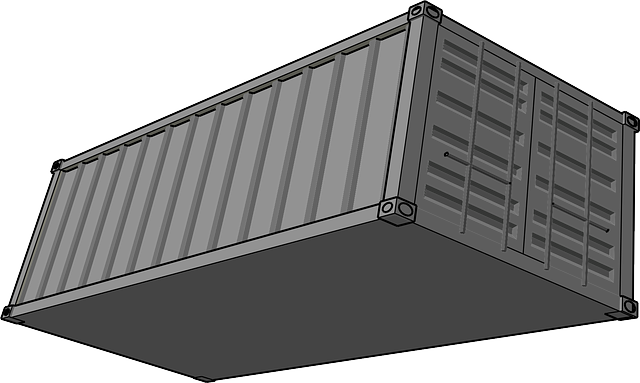Small fleet operations face unique challenges like high vehicle depreciation, wear and tear, regulatory pressures, and fluctuating fuel costs. Customized small fleet insurance solutions address these issues with tailored policies covering liability, property damage, driver accidents, and mechanical failures. By analyzing vehicle types, driving patterns, and operational locations, insurers create effective risk mitigation strategies, such as offering discounts for advanced safety systems and emergency support. These solutions ensure comprehensive protection, improve operational efficiency, and provide financial security, allowing small fleet businesses to focus on growth while navigating industry complexities.
In the dynamic landscape of transportation, small fleet operations face unique challenges that demand tailored strategies. This article explores leveraging customized plans to address industry-specific risks, a game-changer for ensuring operational continuity. We delve into understanding the nuances of industry-specific risks, customizing insurance plans to mitigate unique hazards, and implementing key components of effective small fleet insurance solutions. Additionally, we uncover strategies for continuous risk management and plan optimization, empowering operators to navigate complexities with confidence.
Understanding Industry-Specific Risks for Small Fleet Operations

Small fleet operations face unique challenges and risks that often go beyond standard industry norms. These can include high vehicle depreciation, regular exposure to wear and tear, and the constant need for skilled drivers. In addition, regulatory compliance, safety inspections, and managing fluctuating fuel costs can add significant pressure on operational efficiency. Customized small fleet insurance solutions are designed to address these specific concerns.
By understanding the distinct risks faced by small fleets, insurers can offer tailored policies that cover not just liability but also property damage, driver accidents, and even mechanical failures. Such solutions ensure that fleet operators have comprehensive protection, enabling them to focus on growth and profitability while navigating the complexities of their industry with confidence.
Customizing Insurance Plans to Mitigate Unique Hazards

In today’s competitive landscape, businesses face unique challenges and risks that require tailored solutions. This is particularly true for small fleet insurance, where one-size-fits-all policies often fall short of addressing specific industry hazards. Customizing insurance plans allows insurers to offer comprehensive coverage that aligns with the distinct needs of a small fleet, such as those in logistics or transportation. By analyzing the specific risks involved, including vehicle types, driving patterns, and operational locations, insurers can create tailored solutions.
These customized policies can include enhanced liability coverage for potential accidents, specialized protections against cargo theft or damage, and personalized risk management strategies. For instance, a small fleet insurance provider might offer discounted rates for companies with advanced driver-assistance systems (ADAS) or provide additional support in case of emergency vehicle breakdowns. Such customization ensures that businesses operating small fleets receive tailored risk mitigation, enhancing their operational efficiency and financial security.
Key Components of Effective Small Fleet Insurance Solutions

Small fleet insurance solutions are tailored to meet the unique needs of businesses operating a limited number of vehicles. Key components of such effective solutions include comprehensive risk assessment and customization. By meticulously evaluating each vehicle’s usage, driver profiles, and operational context, insurers can design coverage that aligns precisely with the specific risks encountered by these fleets. This means ensuring adequate protection against perils common in the industry, such as vehicle damage, liability claims, and regulatory compliance issues.
Moreover, small fleet insurance solutions should incorporate flexible pricing models, efficient claims processes, and proactive risk management tools. These features empower businesses to optimize their insurance expenditure while maintaining robust safety measures. Regular reviews and updates to these plans are vital, given the dynamic nature of both the industry and market conditions, ensuring that the coverage remains relevant and effective.
Strategies for Continuous Risk Management and Plan Optimization

In the dynamic landscape of small fleet insurance, continuous risk management is paramount. Businesses should adopt a proactive approach by regularly reviewing and updating their risk assessment strategies. This involves staying abreast of industry trends, emerging threats, and regulatory changes that could impact operations. By conducting thorough risk analyses, insurers can tailor comprehensive plans that cater to the unique needs of each fleet, ensuring optimal coverage and reduced exposure.
Optimizing these plans requires a data-driven mindset. Leveraging advanced analytics and digital tools enables insurers to identify patterns, predict potential risks, and make informed decisions. For instance, utilizing telematics data from small fleet insurance solutions can provide insights into driving behavior, vehicle performance, and maintenance trends. This information empowers insurers to offer customized risk mitigation strategies, such as targeted safety programs or fuel efficiency incentives, ultimately enhancing the overall risk management framework.
By tailoring insurance plans to the unique risks faced by small fleet operations, businesses can achieve comprehensive protection. Understanding industry-specific hazards, customizing coverage, and implementing ongoing risk management strategies are essential for optimizing small fleet insurance solutions. These measures ensure that fleets are prepared to navigate and mitigate potential challenges, fostering a safer and more secure operational environment.
